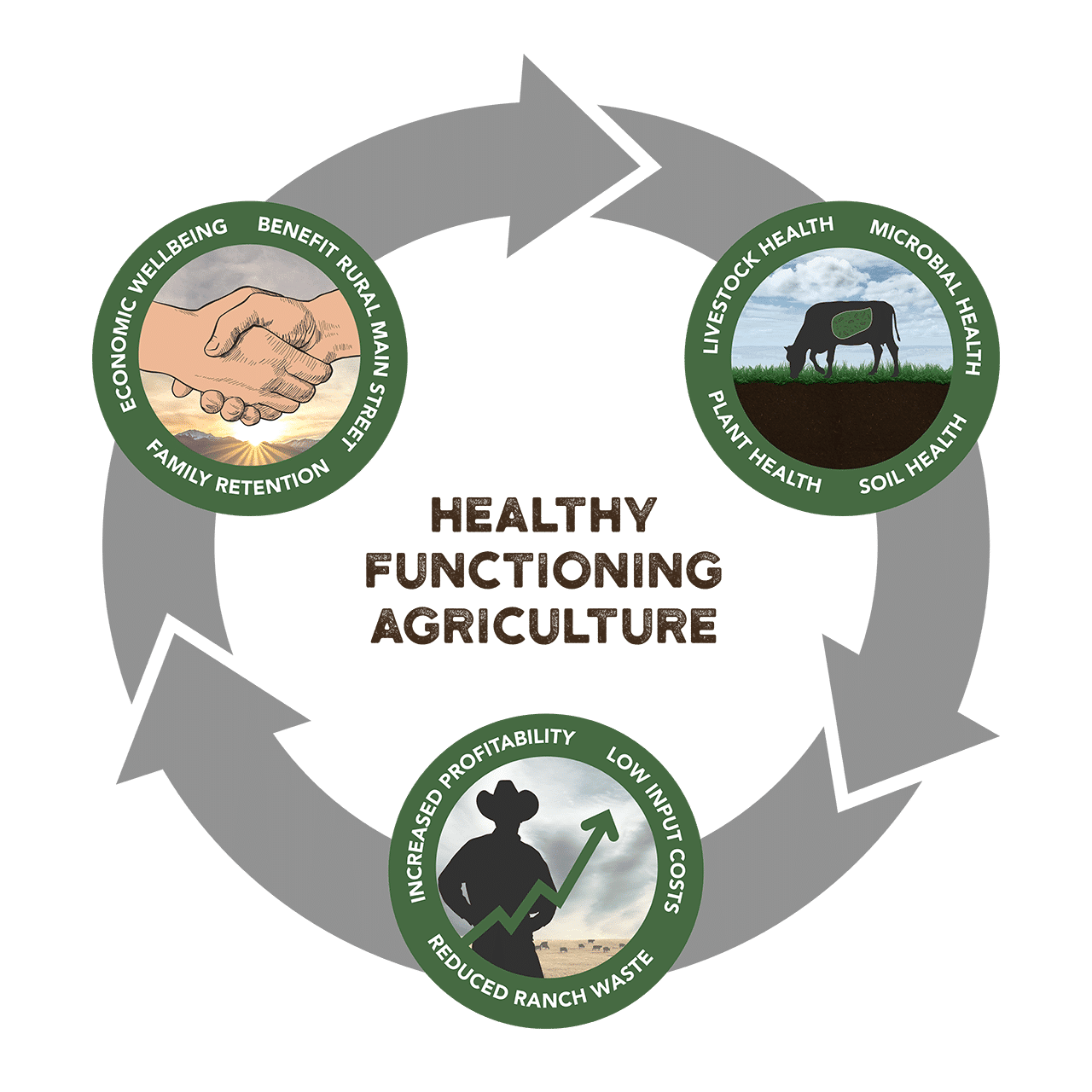Regenerative agriculture. What is it? Why is it important? Is it something you should look into for your farming or ranching operation? Why is everyone all of a sudden talking about it?
Regenerative agriculture is a term that is being used more and more every day. But if you're unsure of what really means, you may disregard it as something that you don't need to worry about. Regenerative agriculture is something that many ranchers feel is just a fad; something that they don't need. We get it; if you've always done something one way and it seems to be working, why bother changing it?
But before you chalk it up as useless, take a brief minute to understand further.
By definition, the word regenerative means to regenerate or renew; rebuild to enhance something. When you add regenerative to agriculture, it means a system of practices that are put together to help rebuild and enhance the entire ecosystem on your operation. That's not so out-there, is it?
Renewing and enhancing your farm or ranch means it can become more profitable, so it can stay alive for generations to come!
What are the building blocks of regenerative agriculture?
A few foundational elements of improving and regenerating your operation include:
- Rebuild topsoil
- Improve biodiversity
- Improve water infiltration and retention
- Support carbon sequestration
- Increase yields
- Build soil and plant health and resiliency
This is not just for row crops. This is for any piece of land, whether it be your pasture, your hay ground, even your garden! Ultimately, it comes back to your operation as a whole, the health of it, and how it impacts your family and even your community.
Why is Soil Health Important?
In the words of Franklin D. Roosevelt, "A nation that destroys its soils destroys itself."
Soil has a direct impact on more parts of your operation than you might think. Once you start making a positive impact on your soil, it'll create a snowball effect on the rest of your farming or ranching operation.
It's easy to see that as the quality and health of your soil improves, it will have a direct impact on the quality and the health of our plants. But it goes even further. If you have livestock on your operation, they eat the healthier plants which leads to healthier livestock. Over time, their production and performance improves, which ultimately has a positive impact on your business, your profits, your bottom line.
It doesn't stop there, either.
Impact Farming & Ranching Communities
When you have a flourishing business and your profits continue to increase, that has a direct impact on your family and community.
More cash flow means more money to help support the community and other businesses within the community, whether they're agriculture-related or not. That means there's a better opportunity for the next generation to come back.
Have you ever stopped to think, why would we encourage the next generation, our kids, to come back to a way of life that's not profitable? Taking this full circle, regenerative approach is an excellent way to make a positive, profitable impact on your operation.
Where to Begin on the Regenerative Journey
We believe that the first place to start on the regenerative journey is focusing on your soil. The soil is the very core of your ranching operation, because the biology below the ground has a direct impact on important things like water utilization, stocking density, plant yield, plant nutrient density, and herd health.
Regenerative agriculture is not a fad; it's not some wacky new way of farming or ranching. It's a complete, holistic, functioning system that drives profitability.
Regenerative agriculture is about implementing practices to improve the things that you care about: your land and your livestock, your profitability, your business, and your community. Best of all? Enabling the next generation to come home to the farm or ranch, and be profitable doing it.



